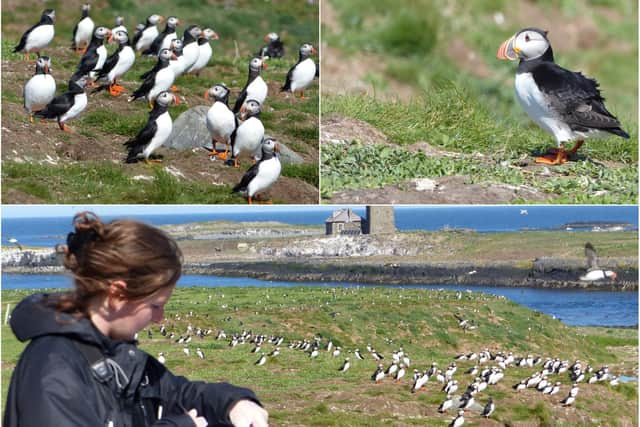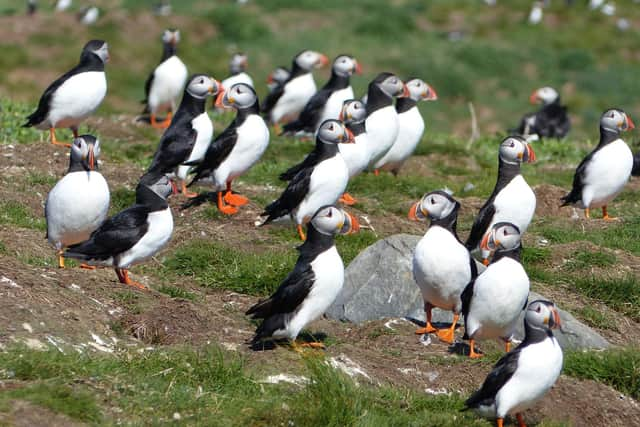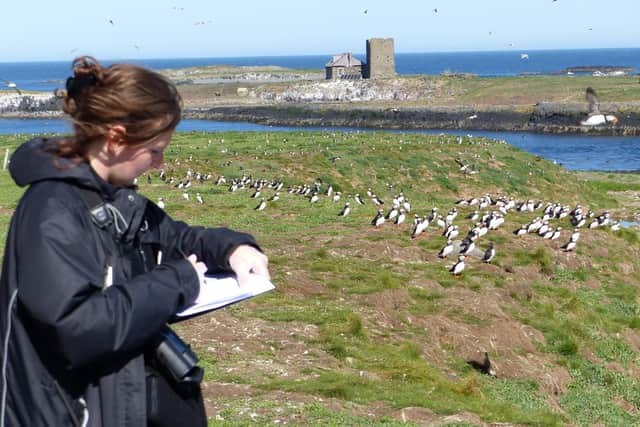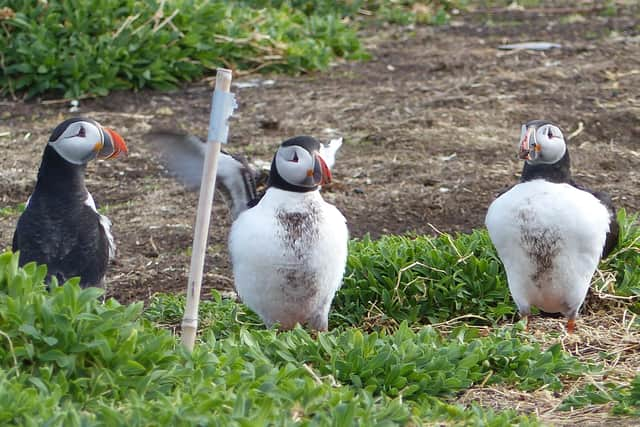How breeding puffins may be benefiting from absence of visitors to Farne Islands
and live on Freeview channel 276
The islands off the Northumberland coast are currently closed to visitors due to coronavirus restrictions but National Trust rangers believe it could be good news for the colourful seabirds.
Harriet Reid, National Trust ranger on the Farnes, said: “Puffins build their nests in burrows and in the absence of visitors we may see them expanding their usual nesting grounds to new parts of the islands.
Advertisement
Hide AdAdvertisement
Hide Ad“Areas such as the picnic spots on Inner Farne, which are usually popular with our visitors, could possibly see new guests this year.”


Rangers are still keeping a watchful eye on the precious seabird colony despite the challenges to typical working practices faced by the team.
The first puffins returning to the islands this year were spotted in March, but the islands are now at full capacity with rangers witnessing first-hand their courtship displays, burrow clearing and general preparations for the breeding season.
Puffins are a vulnerable species with populations seeing a severe decline across the world over the last 25 years. They are currently under threat due to climate change with rising sea temperatures affecting their food sources, particularly the sand eel, which likes to live in cooler waters.
Advertisement
Hide AdAdvertisement
Hide AdLast year more than 43,000 pairs of birds were recorded in what was the first annual survey of the colony. Previously the counts had been conducted every five years.


Numbers on the Farnes have been steady over the past few years due to the islands having very few predators.
“We’ve spent the last 95 years protecting the seabird habitats and colonies here on the Farnes, so it’s important we carry on with a revised plan for this year, so all that hard work isn’t undone,” said Harriet.
“It is highly unlikely that we’ll be able to conduct our typical detailed survey of the seabirds due to not being able to have a full ranger team on site.
Advertisement
Hide AdAdvertisement
Hide Ad“So instead we’ll be keeping records of any significant changes we’re noticing within the colony through our observations, as well as monitoring footage from remote cameras we’ve set up at key points across the islands.”


A message from the Editor:
Thank you for reading this story on our website. While I have your attention, I also have an important request to make of you.
In order for us to continue to provide high quality and trusted local news on this free-to-read site, I am asking you to also please purchase a copy of our newspaper.
Our journalists are highly trained and our content is independently regulated by IPSO to some of the most rigorous standards in the world. But being your eyes and ears comes at a price. So we need your support more than ever to buy our newspapers during this crisis.

